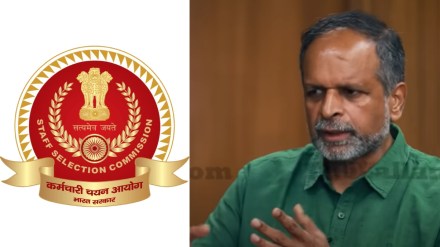The Chairman of the Staff Selection Commission (SSC), S. Gopalakrishnan, has addressed the ongoing controversy surrounding Eduquity Career Technologies and its role in recent SSC exams. In an interview with The Lallantop, he said that many of the allegations being shared online are based on misunderstandings and do not reflect the actual responsibilities given to Eduquity.
“Eduquity is not involved in question paper setting, centre allocation, or content creation,” he said.
The clarification comes after weeks of protests by aspirants upset over technical glitches, alleged paper leaks, repeated questions and mismanagement of exam centers during the SSC Phase 13 and Stenographer examinations in 2025. Many candidates blamed SSC’s decision to award the contract to Eduquity instead of Tata Consultancy Services (TCS), saying the change led to biometric failures, exam cancellations, and confusion over centers.
Gopalakrishnan explained that Eduquity’s role was limited to conducting exams and handling operational logistics. The company was not responsible for preparing question papers, deciding exam centers, or creating exam content; those tasks remain under SSC’s direct control.
Why was the contract split?
He added that the recent tender process followed Supreme Court guidance, which required splitting different responsibilities among multiple agencies. This was different from the earlier system where TCS handled everything from start to finish. The change also affected the payment structure and how work was managed.
Addressing the most serious allegation, Gopalakrishnan said SSC has not detected any paper leaks since 2018. Reports of repeated questions and leaked papers, he said, have no link to Eduquity’s work.
Exam centre confusion and rumors
On claims that some candidates were sent to far-off or wrong centers, including the Andaman Islands, the Chairman said there was no evidence to support such incidents. Limited center availability and security reasons sometimes caused location changes, but Eduquity was not behind these decisions.
According to the Chairman, issues such as system freezes, unresponsive mice and server crashes happened because of new security software, not faulty hardware. The Aadhaar-based biometric verification introduced this year also helped reduce fraud, even if it led to a drop in the number of registered candidates.
The Chairman urged candidates to rely on verified information rather than social media speculation. He maintained that Eduquity has done its assigned work responsibly and that many claims circulating online exaggerate the situation.
